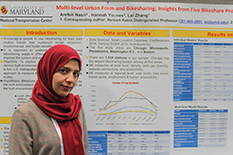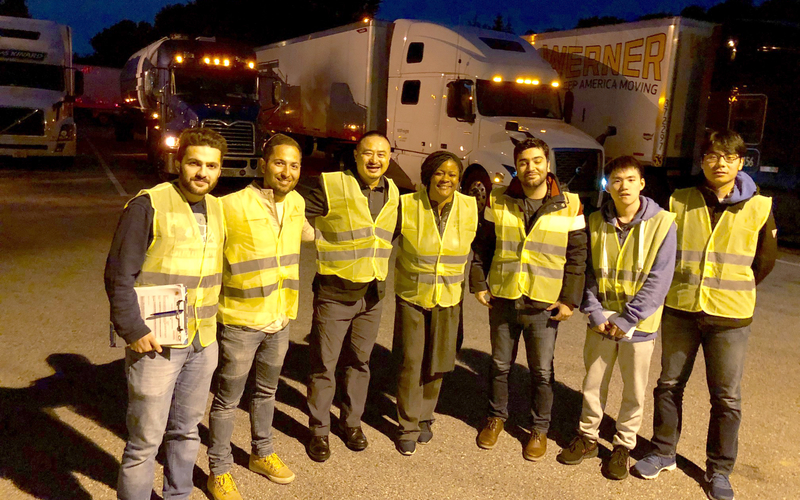News Story
UMD Transportation Experts to Evaluate Economic Benefits of Infrastructure Investments
The National Transportation Center at the University of Maryland (NTC@Maryland) was competitively awarded $500,000 from the American Association of State Highway and Transportation Officials (AASHTO) and the Federal Highway Administration (FHWA) to fill gaps in the case study library at the heart of the EconWorks suite of planning tools. The expansion could help state and federal officials save taxpayer money while maximizing the economic benefits of transportation infrastructure projects.
NTC@Maryland Director Lei Zhang, along with civil and environmental engineering professors Paul Schonfeld and Qingbin Cui, will analyze and document the economic impacts of a number of recently completed transportation projects. Each case study will focus on project types currently underrepresented in the EconWorks library—such as multimodal projects, rural projects, and small to medium-sized projects.
“EconWorks is expected to become the mainstream method and tool that transportation, planning, and economic development agencies in all 50 states and D.C. will implement for the economic benefit analysis of various transportation infrastructure investment projects,” said Zhang, a Herbert Rabin Distinguished Professor in the University of Maryland (UMD) Department of Civil and Environmental Engineering. “It is critical that the case studies built into the EconWorks project library are representative of all types of transportation investments in the U.S. We are very proud to have been selected by AASHTO and FHWA as the first university partner for the development of this exciting new analysis tool.”
Developed in 2015, EconWorks is a suite of web-based tools that help transportation planners and decision makers incorporate economic analysis into project planning and post-project examinations. In addition to the case study library, a meta-analysis tool allows users to quickly evaluate and predict the economic impact of proposed transportation projects. UMD experts will update this tool based on their case study findings.
A more detailed analysis tool is also available to assess wider economic benefits.
“Estimating wider economic benefits is always a challenge at the early stages of project development,” said Cui, who is also a member of UMD’s Project Management Center for Excellence. “By incorporating numerous case studies covering a variety of transportation projects, EconWorks can provide a practical solution using case-based reasoning.”
“At a time when the federal government is considering major investments in the nation’s infrastructure, EconWorks could help agencies save billions of dollars while maximizing economic development benefits,” added Schonfeld.
Throughout the one-year project, UMD researchers will also build on NTC@Maryland’s international reputation as a leader in transportation education and outreach by developing training materials on conducting and using case studies and providing EconWorks training for students, fellow researchers, and agency staff.
Published February 20, 2017








